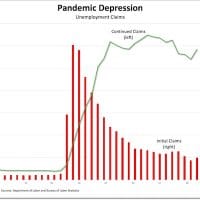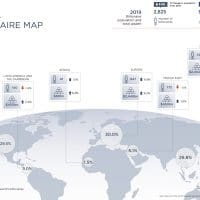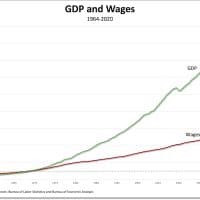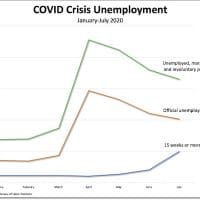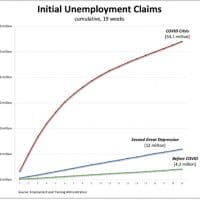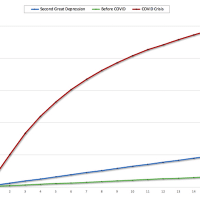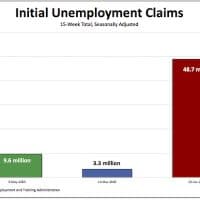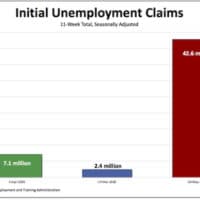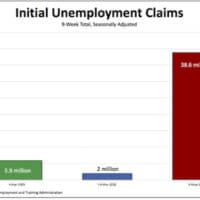-
Economic theories and systems
In the previous chapter, we saw that Marxian economics represents a two-fold critique: a critique of mainstream economic theory and a critique of capitalism, the economic and social system celebrated by mainstream economists.
-
Marxian economics for the 21st century?
It’s an obvious question for those of us living now, in the twenty-first century. Is Marxian economics still relevant?
-
Why Marxian economics?
One of the best reasons for studying Marxian economics is to understand all those criticisms—the criticisms of mainstream economic theory and the criticisms of capitalism.
-
Beyond the mainstream
This is certainly not the first time people have looked beyond mainstream economics.
-
Tale of two capitalisms
Marxian economists recognize, just like mainstream economists, that capitalism has radically transformed the world in recent decades, continuing and in some cases accelerating long-term trends.
-
Contemporary relevance of Marxian economics
My goal is to write a textbook that can fulfill two purposes: first, a stand-alone book for courses that are focused on Marxian economics or survey courses that have a section devoted to Marxian economics; second, it will also be useful as a companion text in a course that is based on reading all of or major selections from Karl Marx’s Capital.
-
Chart of the day
The number of continued claims for unemployment compensation, while below its peak, rose from the previous week and was more than 29 million American workers—a figure that includes workers receiving Pandemic Unemployment Assistance.
-
Mainstream macroeconomics—pandemic edition
Right now, the United States is mired in an economic depression, the Pandemic Depression, not dissimilar to what happened in the 1930s and again after the crash of 2007-08.
-
Billionaires—pandemic edition
2019 was a very good year for the world’s wealthiest individuals. The normal workings of global capitalism created both more billionaires and more combined wealth owned by those billionaires.
-
To the victor belong the spoils
The phrase, which was used in the early nineteenth century to describe the the spoils system of appointing government workers, accurately describes the American economy today.* And it’s pretty clear who the victor is, and it’s not the working-class. Instead, a small group at the top have come out as the victor—and that’s been true […]
-
Chart of the day
The American economy gained 1.8 million jobs last month, even as the coronavirus surged in many parts of the country and newly reintroduced restrictions caused some businesses to close for a second time.
-
Chart of the day
All told, 54.1 million American workers have filed initial unemployment claims during the past nineteen weeks.
-
Divergent recoveries—pandemic edition
The existing alphabet soup of possible recoveries—V, U, W, and so on (which I discussed back in April)—is clearly inadequate to describe what has been taking place in the United States in recent months.
-
Chart of the day
Yesterday morning, the U.S. Department of Labor (pdf) reported that, during the week ending last Saturday, another 1.3 million American workers filed initial claims for unemployment compensation. That’s on top of the 48.7 million workers who were laid off during the preceding fifteen weeks.
-
Chart of the day
Yesterday morning, the U.S. Department of Labor reported that, during the week ending last Saturday, another 1.4 million American workers filed initial claims for unemployment compensation.
-
Chart of the day
At the highest of levels of unemployment following the 2007-08 crash, there were 15.3 million jobless Americans.
-
“A riot is the language of the unheard”
More than 50 years ago (on 14 April 1967), Martin Luther King Jr. delivered one of his famous speeches, on “The Other America,” at Stanford University.* King patiently explained to the audience of students and faculty members that, while in his view “riots are socially destructive and self-defeating,” they are “in the final analysis. . .the language of the unheard.”
-
Corporate university—pandemic edition
Will colleges and universities reopen in the fall? That’s the question on the minds of many these day—administrators, faculty, staff, students, and their families, not to mention the communities in which they live.
-
Chart of the day
All told, 38.6 million American workers have filed initial unemployment claims during the past nine weeks.
-
Safe from the pitchforks?
OK, I’m done with all these trite catchphrases about all of us being in this mess together.


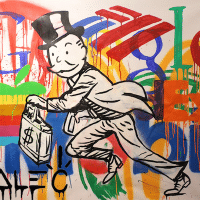

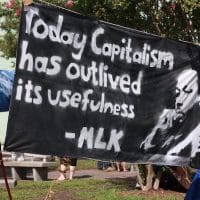

![I’ve just signed a contract with Polity Press to write a new book, “Marxian Economics: An Introduction.” The idea is to publish it in late 2021 or early 2022. - David F. Ruccio (Photo: [ht: adm])](https://mronline.org/wp-content/uploads/2020/09/exupl4jvcamiifh-copy-200x200.jpg)
